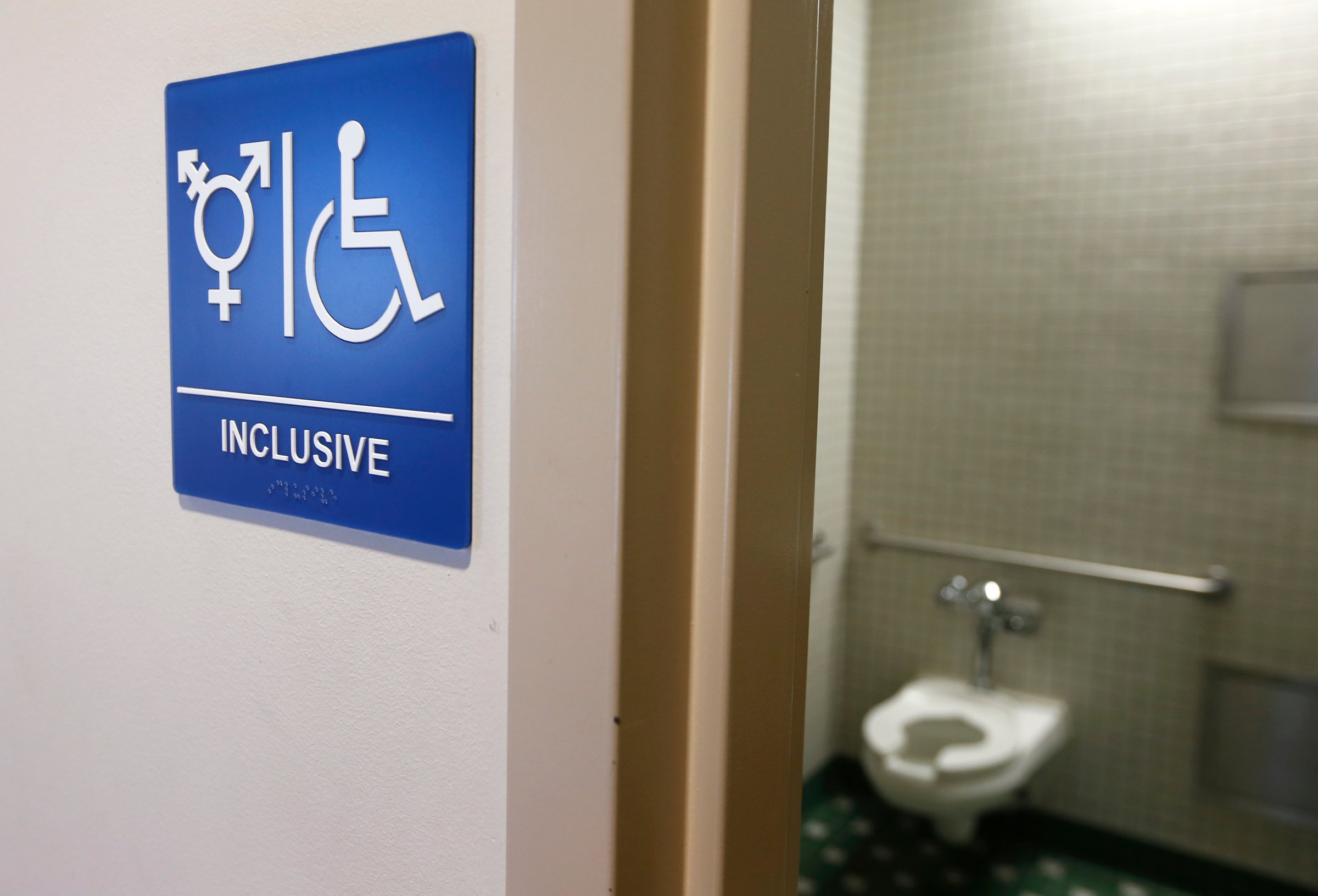
California Gov. Jerry Brown signed a bill on Thursday that requires public single-occupancy bathrooms in the state to be gender neutral, or as the bill puts it, available for all genders.
“For me, it’s ultimately a matter of convenience for the largest number of people,” Assemblymember Phil Ting, the sponsor of the bill, tells TIME. “It’s something we all need to use every day and something we all need urgently at a particular time.”
The new law is aimed at making sure public spaces are inclusive for the LGBTQ community, but Ting says that the “common sense” measure will help others as well, like parents or caretakers who want to accompany individuals of the opposite sex into the bathroom. Supporters of such measures have also argued that it should lead to greater equity in wait times, as women often find themselves in a queue as a single-stall men’s room sits vacant.
Ting says that though he got some pushback from social conservatives, who have opposed bathroom access for transgender people in fights around the country, the strongest opposition to the bill was actually the notion “men don’t seem to be able to use the bathroom without making a mess.” And that, he says, is something everyone will simply need to figure out how to do.
Advocates for such measures emphasize that the costs of complying are small, typically amounting to the charge for new gender-inclusive signage (perhaps $40) to replace “men’s” or “women’s” signage and the labor costs of putting those signs up. The measure goes into effect on March 1, 2017.
Several cities, including Philadelphia, Washington, D.C., and San Francisco, have proposed or passed similar resolutions in recent years. More than 150 U.S. colleges and universities have also instituted such measures, including the entire University of California system.
Earlier in the week, LGBT rights groups commended the Sacramento Kings, whose new stadium will have 23 all-gender public restrooms when it opens on Oct. 1. And many activists drew a contrast between this measure and controversial laws that have restricted bathroom access for transgender individuals in places like North Carolina. “California has, with a minimum of controversy, moved in a different direction,” said Rick Zbur, executive director of Equality California.
More Must-Reads from TIME
- Cybersecurity Experts Are Sounding the Alarm on DOGE
- Meet the 2025 Women of the Year
- The Harsh Truth About Disability Inclusion
- Why Do More Young Adults Have Cancer?
- Colman Domingo Leads With Radical Love
- How to Get Better at Doing Things Alone
- Michelle Zauner Stares Down the Darkness
Contact us at letters@time.com